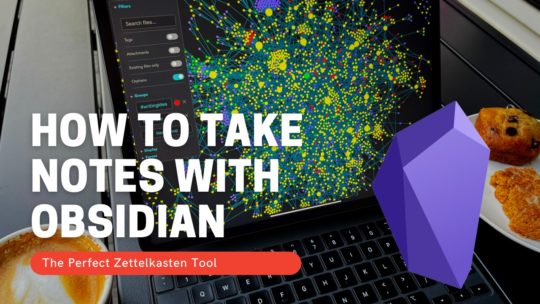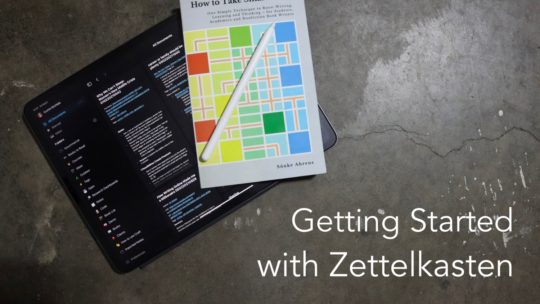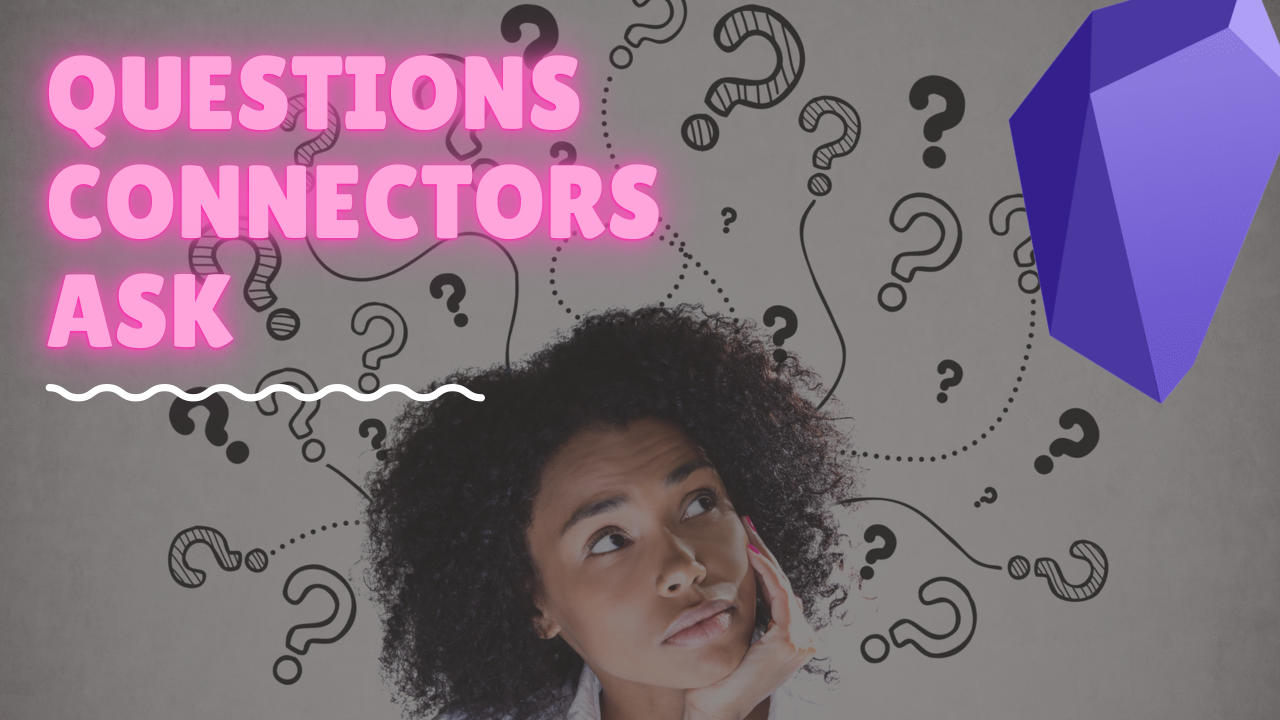I know that no one watching my videos wants to fall into The Collector’s Fallacy, we want to be connectors. No you may not have a YouTube channel, but you want to produce something good out of the reading and research you do. You want to be a better parent or community member, or have a good conversation with like minded individuals.
Today I’m going to talk about he questions that connectors ask when they look at their notes.
ABC Lists
Before we even dive into questions a great priming exercise is to create an ABC List. To do this write down the alphabet from A – Z (or whatever it is in your native language) and for each letter write down one word that goes with the topic at hand.
This will help force your thinking on a topic and can help you make connections as you think your way through the letters. I often find it very helpful to even talk my way through an idea as I go. Something about talking out loud works for me, but I’m alone in my basement office usually so I don’t look weird to anyone but myself.
Now, in no particular order here are some questions I ask myself.
How Does this Fit with stuff I already know?
When I read The Dip recently I felt like it and Range contradicted each other. I felt like The Dip was saying, stick with it while Range was saying that diverse ideas and experiences were one of the keys to success.
It was only once I started to try and write about how they didn’t match that I realized that they are likely just talking about different sections of Seth Godin’s dip. The Dip is talking about the whole range of experience in your career while Range is talking specifically about the “dip” section and how diverse experience can help you work through that and come out strong on the other side.
If I hadn’t tried to fit these two ideas together, I would have never had this insight.
You need to approach this question from two angles. Does this fit well with anything I already know is just as valid as questioning if new knowledge contradicts information you have already learned. When it comes to long held beliefs, it may even be more important to ask the latter question, so you don’t fall into confirmation bias.
What is the Counter Point to this idea?
Years ago I read a great article whose short title, The Other Side is Not Dumb summarizes it’s point well. It asks us to question whether we’re really so right about everything. In essence, it calls into question our tilt towards confirmation bias.
When you encounter a new idea, especially an idea you agree with, ask yourself if you could describe the counter point to it with the same fervor you use to agree to the idea. This does a few things for you.
First, it helps stop the illusion of explanatory depth, which I learned about in The Data Detective. This idea came from a study that asked people to describe basic every day things like using a toilet. They all thought they understood it very well, but when asked to explain it in detail they realized that they didn’t understand it very well.
When we realize that we don’t understand things well, it helps reduce polarization as we have assessed our understanding and found it wanting. We have been weighed, we have been measured, and we have been found wanting.
The second benefit of this comes when you encounter a new idea from someone else and then ask them to explain it in detail to you. How it works, what the problems are and what the detailed solutions are and how you would implement them. This can help you learn something new, as well as reduce polarization between the two parties.
What Am I Going to Do About It?
One of the final questions I want to ask myself about a new ideas is, what will I do with this information? How will a new idea explain something in my own life or help me be a better person? Deriving new meaning for your personal application is a key component of growth as a person.
In Kurt Vonnegut’s Player Piano, the author introduces us to a fully mechanized society where sure people have money taken care of, but almost everyone lacks meaning. They simply do what the machines say they are suited for based on their IQ and if at some point a machine comes along that fits better, they’re out of a job. Maybe they’ll be on a crew of 20 that are supposed to run fire hydrants, with 1 person working and the others watching.
If you’re not going to take your research and turn it into something meaningful for you, then what are you doing it for?
Putting it Into Practice
When I read Man’s Search for Meaning I was struck by the author’s discussion about meaning keeping people moving forward in the midst of unimaginable pain. Frankl says that if you loose sight of a future goal you decline which also made me think of The War on Normal People talking about stripping people of meaningful work, which relates directly back to the entire world in Player Piano.
Asking myself questions like the ones listed here is what get’s me to look at some of the anti-vacination and anti-mask groups and at least see a path from lack of meaning in life to finding a group where they have a direction to point their lives. I disagree with the meaning, but I can see a path towards it. Since I can see a path towards these types of groups, there must be a path out of it and to apply that to my life, how will I choose to engage in discussion to help reduce polarization?

Getting Started with Obsidian
If you want to learn your way around Obsidian so that you can build a great note system then this course is for you. I’ll cover basic folder structure when to use tags or links, and the plugins I think everyone needs to make their Obsidian experience excellent. Plus much more. If you want all my courses, become a member.
$99 USD (30-day guarantee)

Getting Started with Zettelkasten
If you’ve been wondering about what Zettelkasten is and how to start organizing your notes with this excellent system then this course is for you. I’ll cover the basics of choosing which tool to use, how to take notes, how to deal with linking your notes, and much more. You can also become a member to get all my courses.
$99 USD (30-day guarantee)
